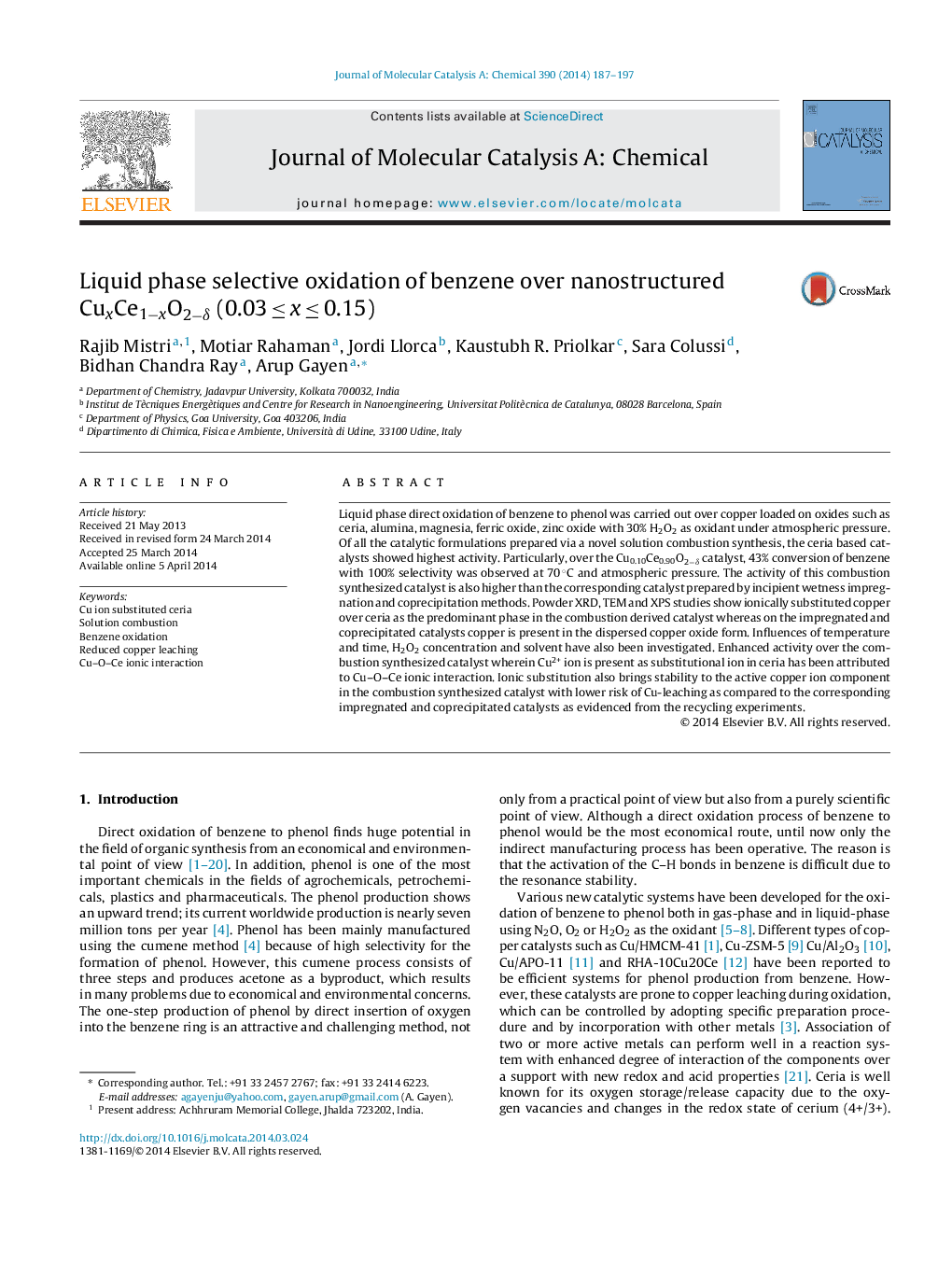| Article ID | Journal | Published Year | Pages | File Type |
|---|---|---|---|---|
| 65533 | Journal of Molecular Catalysis A: Chemical | 2014 | 11 Pages |
•A single step solution combustion synthesis leads to Cu0.10Ce0.90O2−δ.•Liquid phase benzene oxidation is carried out under mild reaction conditions.•Copper ion substituted in ceria is the predominant phase.•Solution combustion is superior to impregnation and coprecipitation methods.•Ionic substitution reduces extent of copper leaching.
Liquid phase direct oxidation of benzene to phenol was carried out over copper loaded on oxides such as ceria, alumina, magnesia, ferric oxide, zinc oxide with 30% H2O2 as oxidant under atmospheric pressure. Of all the catalytic formulations prepared via a novel solution combustion synthesis, the ceria based catalysts showed highest activity. Particularly, over the Cu0.10Ce0.90O2−δ catalyst, 43% conversion of benzene with 100% selectivity was observed at 70 °C and atmospheric pressure. The activity of this combustion synthesized catalyst is also higher than the corresponding catalyst prepared by incipient wetness impregnation and coprecipitation methods. Powder XRD, TEM and XPS studies show ionically substituted copper over ceria as the predominant phase in the combustion derived catalyst whereas on the impregnated and coprecipitated catalysts copper is present in the dispersed copper oxide form. Influences of temperature and time, H2O2 concentration and solvent have also been investigated. Enhanced activity over the combustion synthesized catalyst wherein Cu2+ ion is present as substitutional ion in ceria has been attributed to Cu–O–Ce ionic interaction. Ionic substitution also brings stability to the active copper ion component in the combustion synthesized catalyst with lower risk of Cu-leaching as compared to the corresponding impregnated and coprecipitated catalysts as evidenced from the recycling experiments.
Graphical abstractFigure optionsDownload full-size imageDownload high-quality image (199 K)Download as PowerPoint slide
